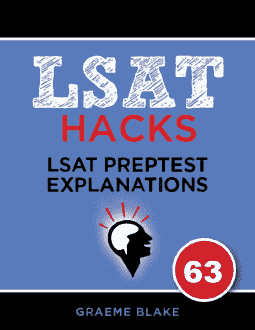QUESTION TEXT: Counselor: Those who believe that criticism should…
QUESTION TYPE: Flawed Reasoning
CONCLUSION: Only harsh criticism will cause change.
Change ➞ Harsh criticism
REASONING: Change ➞ motive
Harsh criticism ➞ unpleasant ➞ motive
ANALYSIS: The author has shown that harsh criticism is sufficient to provide a motive for change. And having a motive is a necessary condition for change.
But the author then assumes that harsh criticism is necessary for a motive. This is reversing sufficient and necessary. Any “flawed reasoning” question that uses conditional logic will probably mix up sufficient and necessary.
___________
- CORRECT. Bingo. A polite request can often also change behavior, for example. Harsh criticism isn’t necessary, even if it can occasionally work.
- This isn’t a problem. The counselor’s conclusion only addresses whether or not criticism will work as a means of changing behavior.
- The counselor only said that change requires a motive. He didn’t say that harsh criticism will work every time.
- The counselor only talks about a motive for changing. He doesn’t mention a motive for avoiding change.
- The counselor technically didn’t refute any argument. He just said that the people mentioned in the first sentence should consider his argument.


Hi Graeme– I was torn between A and B here and although I understand why A is a solid answer, I’m struggling to understand why B is wrong. My reading of the stimulus was:
conclusion: Those who believe that criticism should be gentle should consider…
premises: Change ➞ motive, Harsh criticism ➞ unpleasant ➞ motive
intermediate conclusion: therefore only harsh criticism = change
——
How is the first sentence not the conclusion? Doesn’t the colon indicate that the rest of the stimulus is set up to prove the first sentence?
Thank you!
You could say the implication of the first sentence is the conclusion. The implication is those who believe this are wrong. But it is the final sentence which proves they are wrong. And the argument goes wrong in this proof.
The final sentence is about whether only harsh criticism will cause a change. That’s a factual claim. But B is about the goal of criticism. The argument isn’t talking about the goal of criticism. Hope that helps!